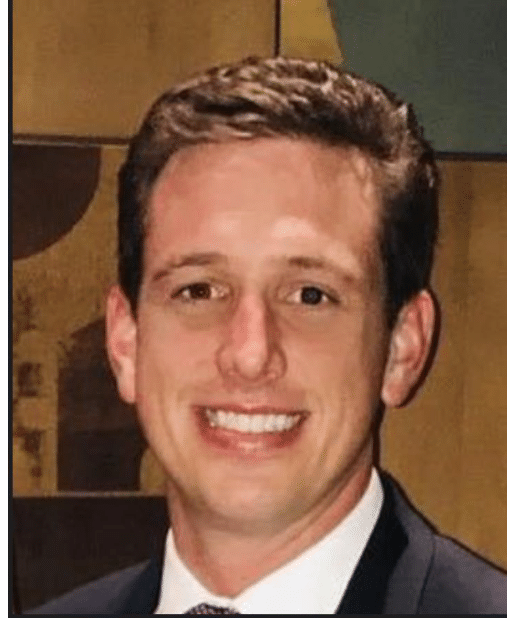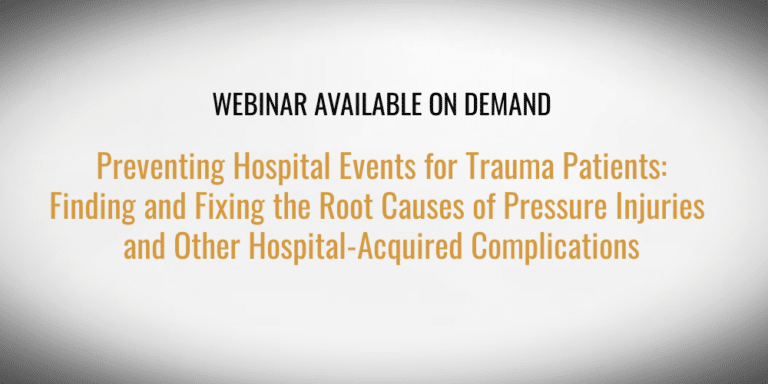Trauma patients, especially those who experience prolonged hospitalization, can be vulnerable to pressure injuries and other hospital-acquired complications (HACs).
The challenge for trauma program leaders is that it can be difficult to identify the root causes of high complication rates. Even when the underlying issues are known, implementing effective solutions is often an uphill battle.
This webinar from November 2024 shows trauma program leaders how to identify the root causes of HACs and implement organizational changes that ensure greater patient safety.
Click below to view the webinar recording on demand and download the presentation:
[On-Demand Webinar] Preventing Hospital Events for Trauma Patients
[Presentation as PDF] Preventing Hospital Events for Trauma Patients
During this one-hour webinar, the presenters discuss how to:
- Identify issues in trauma patient care that are leading to hospital complications
- Develop practice changes aimed at preventing complications downstream
- Create tailored protocols that fit your patient population and resources
- Use an organized approach to implementing evidence-based nursing processes
Sponsored by Aspen Medical Products, this webinar is designed for anyone who helps ensure quality care for trauma patients — trauma program managers, TMDs, trauma program coordinators and PI coordinators, trauma and critical care nurses, ICU directors, chief nursing officers and hospital quality leaders.
Presenters

Jan Powers, PhD, RN, CCRN, CCNS, NE-BC, EBP-C, FCCM, FAAN
Director of Nursing Research and EBP
Parkview Health
Dr. Jan Powers is an expert in evidence-based nursing who is passionate about inspiring nurses to own their practice. In her current role at Parkview Health, she has accountability for professional practice and research development for a 14-hospital system. She has conducted many research studies related to nursing practice, with a primary focus on pulmonary care, trauma, pressure injuries and nutrition, and has published more than 90 journal articles and book chapters. Jan received her BSN, MSN and PhD from Indiana University School of Nursing, and she is also a part-time faculty member at IU School of Nursing Graduate Program.

Key Account Manager
Aspen Medical Products
Blake Havers
Key Account Manager
Aspen Medical Products
Blake Havers has extensive experience in the medical product industry. With a primary focus on business development for acute care, Blake facilitates new product introductions for Aspen Medical Products from the proposal stage through implementation.

